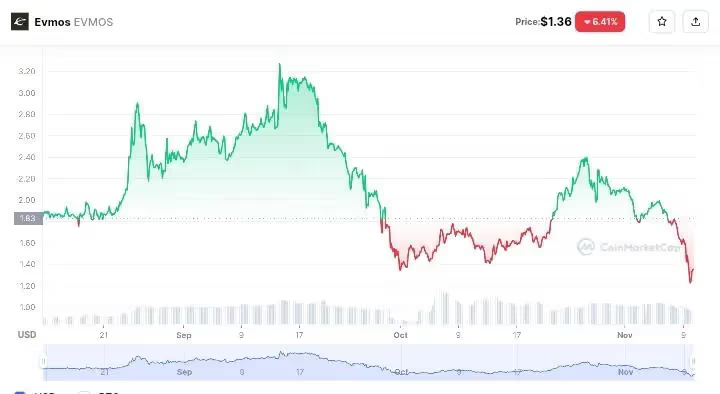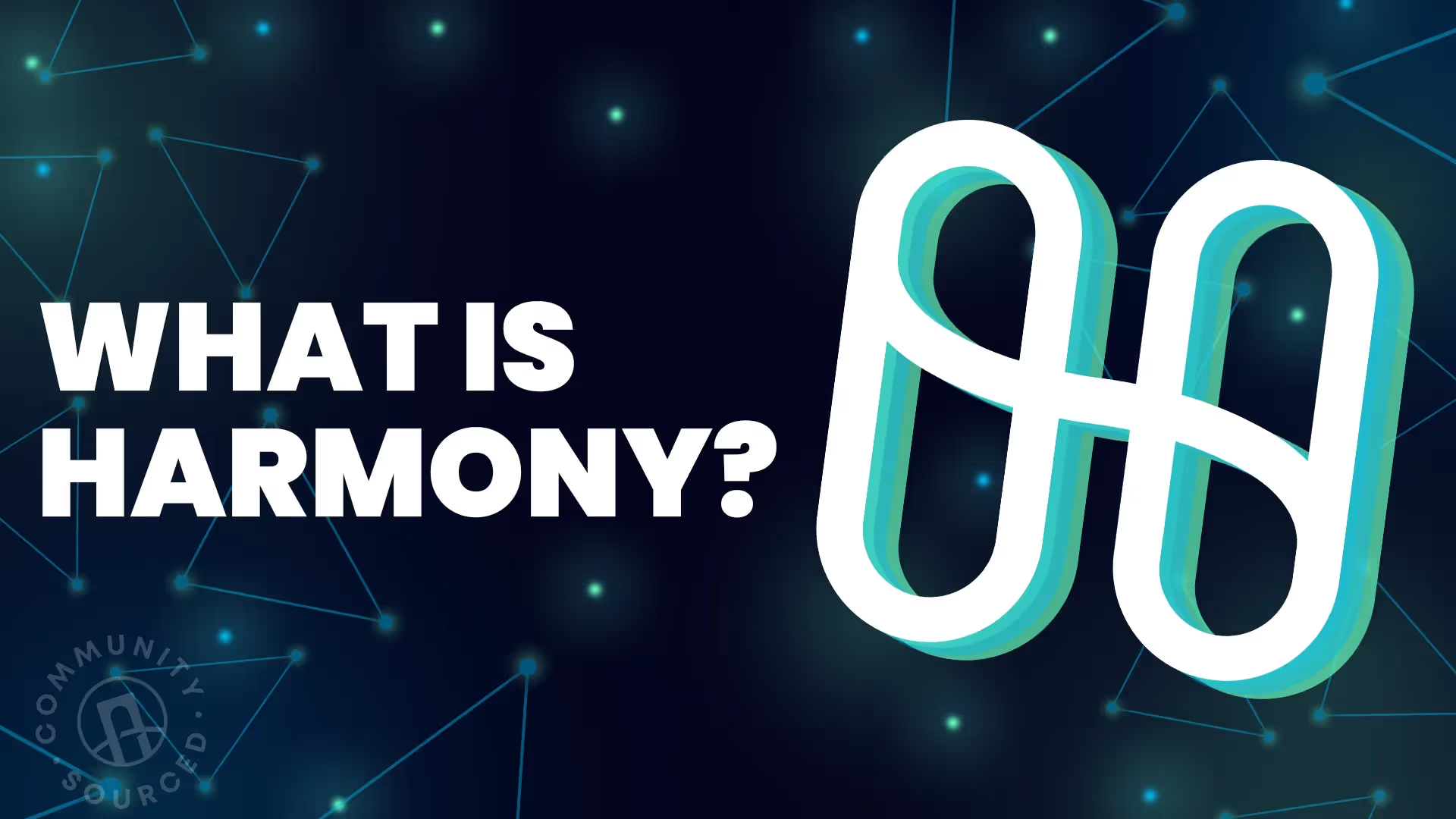AN OVERVIEW OF EVMOS

Evmos is the first EVM-based Inter Blockchain Communication (IBC) protocol that leverages the Cosmos software development kit (SDK) to enable interoperability and swift transactions on Ethereum. In this article, we briefly introduce Evmos and discuss how it facilitates the development of interoperable decentralized applications (dApps).
TL; DR
- Evmos is a highly scalable layer one blockchain that facilitates interoperability and fast transactions. Built on Tendermint Core's Byzantine Fault Tolerance consensus algorithm, and based on the Cosmos software development kit, Evmos operates on a proof-of-stake (PoS) consensus mechanism.
- Due to its support for the Cosmos software development kit and its EVM compatibility, Evmos enables developers to enjoy the benefits of building on Ethereum while profiting from Tendermint's proof-of-stake implementation.
- The native token of the Evmos ecosystem is called EVMOS. The EVMOS token may be used by holders to connect with decentralized apps and pay transaction fees. EVMOS tokens are also given to validators in exchange for adding new blocks and safeguarding the network.

WHAT IS EVMOS?
Evmos is a highly scalable EVM-compatible layer one blockchain based on the proof-of-stake (PoS) consensus mechanism.
Built on the Tendermint Core consensus algorithm, and based on the Cosmos software development kit, Evmos facilitates super-fast transaction times, high throughput, and low costs. As a result, developers can build scalable decentralized applications (dApps) effectively in addition to being able to run Ethereum smart contracts on app-specific Cosmos networks.
Evmos is compatible with the so-called internet of blockchains – the Inter-Blockchain Communication (IBC) protocol – which is regarded as the safest and most secure means of moving tokens between several chains. The Inter-Blockchain Communication protocol enables Evmos to connect decentralized applications to various blockchains, thereby enabling users to take advantage of combined liquidity.
HOW DOES EVMOS WORK
Evmos enables developers to distinguish its network from the application layers of other blockchains using the Tendermint Core Byzantine Fault Tolerance (BFT) consensus method.
Evmos enables developers to create multi-chain dApps quickly and effectively by fusing the best elements of Cosmos and the Ethereum networks.

Tendermint's Application Blockchain Interface (ABCI) – the interface between Tendermint and decentralized applications – binds the Cosmos-based consensus mechanism and decentralized applications by calling requests and receiving response messages from the applications which are transmitted to the nodes in the network.
There are two distinct node types in the Evmos network; complete nodes and validator nodes. Transactions are validated by validator nodes, which propagate new blocks into the blockchain. On the other hand, full nodes keep a complete record of each transaction that occurs on the Evmos blockchain and may access on-chain information upon request. Both a validator node and a complete node must be operated by validators.
The Evmos ecosystem employs a list of the 150 highest staking validators to reward staking and network security. These Validators are chosen based on their total stake amount, including any delegated stakes as anyone who wants to safeguard the network and get passive income can assign their tokens to a validator of their choice. However, if validators exhibit actions that the network deems inappropriate – such as downtime and double signing – they risk losing their stakes.
OVERVIEW AND HISTORY OF EVMOS
Evmos was initially conceptualized in 2016 as Ethermint – a highly scalable proof of stake blockchain based on the Cosmos Tendermint consensus algorithm – by a team of engineers; Federico Kunze Küllmer, Akash Khosla, and Nic Z.
The team is led by Federico Kunze Küllmer who has been an active Cosmos contributor that helped develop Gravity bridge, Cosmos SDK, and the inter blockchain communication protocol. Akash, who is also the co-founder of Blockchain at Berkeley, has extensive experience in software engineering and has worked at Anchorage where he helped secure crypto assets worth billions of dollars. Not much is known about Nic Z who is also believed to be a staunch software engineer.

The Cosmos Hub community granted 100,000 ATOM tokens to Tharsis Labs in April 2021 to help bring the Ethermint concept to life. A few months after its April debut, Ethermint was then rebranded to Evmos – a layer one blockchain that aims to offer EVM-on-Cosmos – in September 30. In October of the same year, Evmos testnet – Arsia Mons – went live. Subsequently, in November, Evmos announced its incentivized testnet – Olympus Mons which was accompanied by the testnet event – the Mars Meteor Missions.
In December Poket network joined Evmos to provide RPC node infrastructure to developers. Shortly after Evmos announced its genesis airdrop – Rektdrop. In February 2022, Evmos announced its grants program, offering developers and initiatives funding to build on the Evmos ecosystem.
The EVMOS Chain and its genesis airdrop – Rektdrop – was initially launched in March 2022. The purpose of the airdrop was to reward early adopters. However, many users missed the airdrop due to technical complications. Consequently, The Evmos Chain had to postpone its debut to April 2022.
In November 2022 Tharsis Labs announced that it has completed a $27 million seed round to facilitate the development of the Evmos ecosystem. This investment round was led by Polychain Capital with the involvement of several angel investors from the Web3 industry as well as Galaxy, Huobi, HashKey, Coinbase Ventures, Circle Ventures, and Asymmetric.
ABOUT THE EVMOS TOKEN
EVMOS is the utility token of the EVMOS ecosystem. Holders of the EVMOS token can utilize it to pay for transaction fees, or stake them to earn rewards. As of the time of writing, EVMOS had a market capitalization of about $407.726 million and was trading at $1.36, representing a drop of roughly 67.88% from it's all-time high in May 2022 when it traded for $4.2289

The EVMOS token contributes significantly to the security of the Evmos network as it is used to incentivize developers and validators. Holders of the EVMOS token who are unable to run a node can delegate their tokens to a validator of their choice – by using the Keplr wallet, and choosing a validator from the EVMOS staking pool – and share rewards proportional to the amount of tokens they provide.
Holders of EVMOS tokens are also in charge of directing the Evmos decentralized autonomous organization (DAO) and deciding what happens to all on-chain assets that enter Cosmos through the Evmos port-of-entry.
IN CONCLUSION
Evmos enables Web3 developers to seamlessly deploy Ethereum smart contracts onto application-specific Cosmos blockchains in addition to fostering interoperability by connecting decentralized applications to several blockchains – enabling them to take advantage of pooled liquidity from various networks, – thus facilitating mass adoption. Next-gen layer-one solutions like Aptos also share the goal of making blockchain technology accessible to all and is setting the pace for mass adoption. In addition to aiming to be a layer-one for widespread adoption, Aptos delivers the safest and most scalable blockchain which outperforms most contemporary layer-one blockchains in terms of speed, cost, security, and scalability.
Pontem is developing the infrastructure and decentralized tools necessary for the adoption of the Aptos blockchain. Its wallet serves as the bridge to the Aptos ecosystem as it allows users to not only send and receive tokens, but also enables them to connect to decentralized applications, and explore the Aptos ecosystem.
ABOUT PONTEM
Pontem is a product development platform that enables global financial inclusion through blockchain technology. Pontem is actively collaborating with Aptos Labs to build a product roadmap to facilitate mainstream adoption.

.svg)






